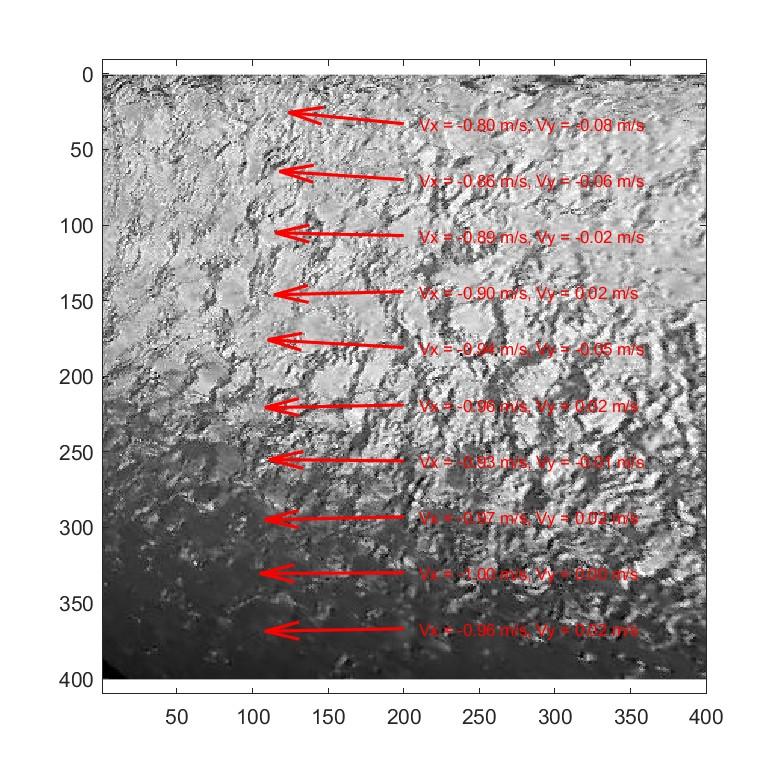- This topic has 0 replies, 1 voice, and was last updated 2 years, 7 months ago by .
-
Topic
-
We are sharing a Matlab code to estimate the time-averaged flow velocity and depth of a flow from a sequence of orthorectified images, with the hope that it can be of interest for the community: https://doi.org/10.5281/zenodo.7998890
The code is based on our work published in WRR last year (Dolcetti et al., 2022, Using noncontact measurement of water surface dynamics to estimate river discharge, Water Resources Research, 58 (9), e2022WR032829. https://doi.org/10.1029/2022WR032829), although it uses a different open access optimiser.
The basic principle is to use the space-time Fourier spectra of the surface deformations and compare them with a theory of water waves to invert the flow parameters. The method does not need artificial tracers, but unlike other methods, it takes into account the fact that gravity and capillary waves can propagate in different directions relative to the flow. It is meant as an alternative to LSPIV or STIV approaches for rivers with visible wave patterns (also standing waves).
Estimation of the depth based on its effect on wave dynamics is also possible, although it requires a fairly large area of interest (AOI) to work well (around 10x the water depth). Together with the code we are sharing two examples showing how to calculate an average depth over a large area but also a distribution of velocities with a higher resolution (comparable to LSPIV in principle). The documentation and the article in WRR contain additional information on uncertainties, limitations, and guidelines for optimal operation.
This is a first version of the code. We will greatly appreciate any feedback and comments.
Best,
Giulio

- You must be logged in to reply to this topic.